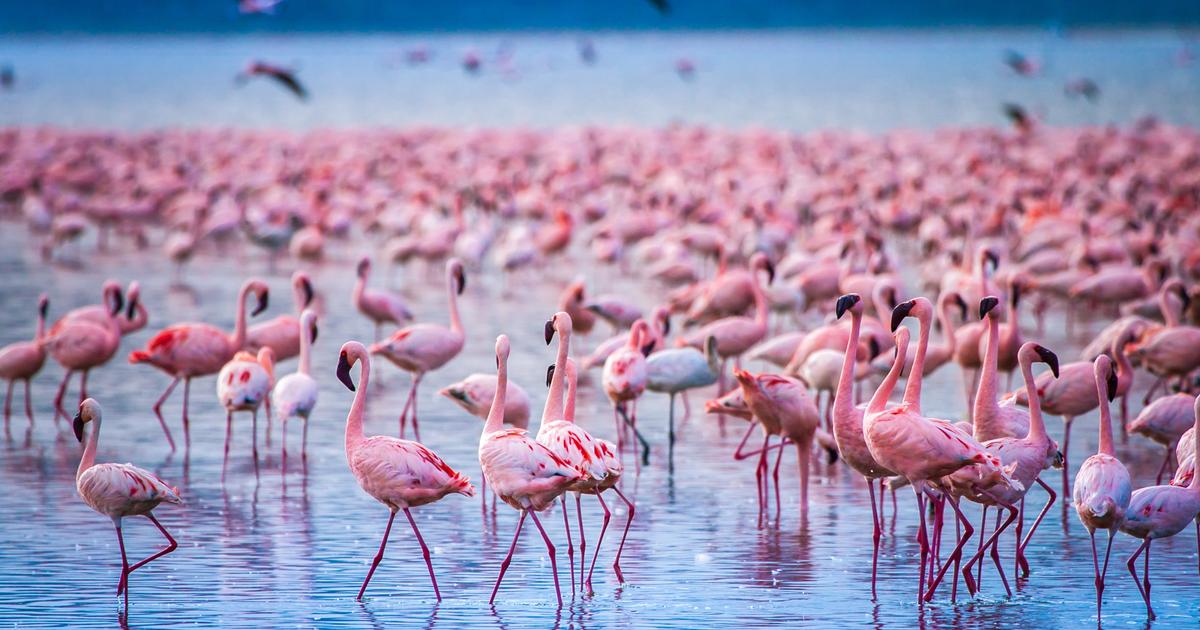Every year, more than a million pink flamingos gather on the lakes of Africa in a shimmering ballet. But the continued rise in water levels is increasingly reducing the algae necessary for the survival of these flamboyant web-footed birds.
The sharpest declines in algae concentrations were observed in Kenya, particularly in Nakuru, one of the most important flamingo feeder lakes in Africa. Erratic and extreme rainfall predicted for East Africa due to climate change would only worsen the problem and "increase the threat to species in the region," says lead author Aidan Byrne. The study is the first to use satellite imagery to observe the 22 lakes that host flamingos in East Africa. It was published in the journal Current Biology, which is published by King's College London and the National Museum of Natural History in Paris. The research was carried out using data spanning more than 20 years and was conducted by the University of London's Department of Zoology and the Natural History Museum of Paris.

